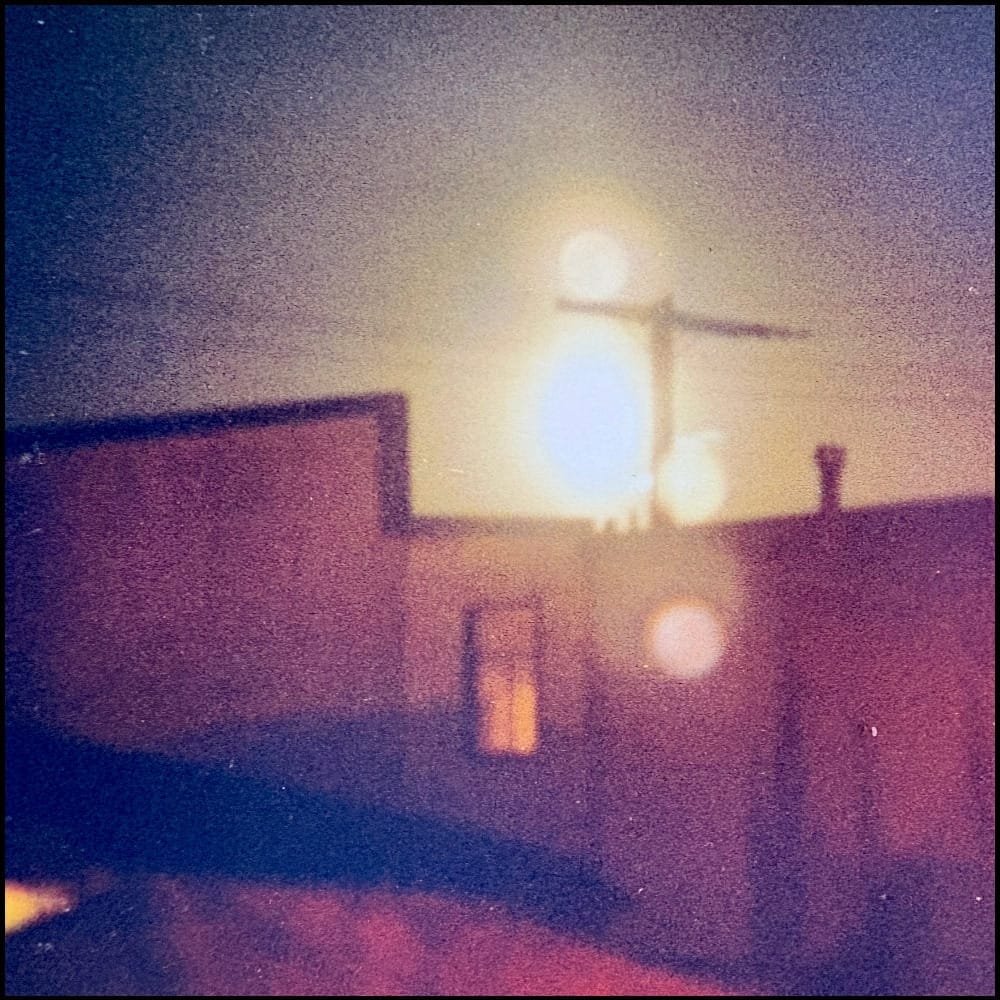the fires that fence in the world

Of course it’s worthwhile to say the thing out loud every so often, to feel it settle into words instead of ghosting about the inside of your head as frightening abstraction. You wrap your tongue around that shadow, mime belief in finitude, however fleeting: you hold your breath and try putting your feet down. But it’s never much more than an outline, brackish margins threatening to betray the integrity of the centre, with so much abandoned at the border. Sometimes the naming is just an exercise in symptoms management, a pressure valve. But for all it makes legible, all it domesticates, what does a blunt instrument like "depression" further obscure?
What becomes of those gnawing, unspoken paranoias that needle its boundaries, the extant sting of things like "alexithymia" (difficulty identifying and expressing emotions, or confusion about their origins or authenticity) or "apophenia" (belief that one can discern patterns or correspondences among apparently unconnected or random phenomena)? Who answers all the question that come with them? Who's to say that everything’s not connected? Who’s to say that appearances don’t share something like a secret language? Who hasn’t seen in the most banal coincidence a quiet threat of some impending rip in the fabric of reality? And what about all those other words we don't use, floating unspoken alongside the ones we do, forming chains of significance that we hope will tell us how crazy we are by way of how crazy we’re not?
When all you see is endless space between things and incomprehensible continuity across them, when every thing watercolours into every other, sometimes it’s all you can do to just look away, to keep your head down and try to get on with your day. You think, "Depression is just a word, but I use it." But as we know from Stuart Hall, it's always strategic: any and every attempt to fix meaning through its representation in language will be arbitrary and provisional, initiated to effect a specific and contingent end. So what am I after, in a world like this one, if not just another sick day? If the exchange of symbols is all we have, what does the weight of "depression" demand in return? What responsibilities does it hold us to?
I haven't yet read her 2021 breakout novel Detransition, Baby, but on the recommendation of a dear friend I recently burned through Stag Dance, the incredible short story collection Torrey Peters published earlier this year. While the lede was certainly enough to grab my attention – "Stag Dance," the centrepiece novella, is set in an illegal logging camp in the lead-up to a dance to which some of the gruff working men are invited to attend as women, told in a seamless period vernacular – the real heart of the collection beats with much more ferocity than its quirky aesthetics might initially suggest, and in the richness of its language the book plumbs some startling depths. It's hilarious and it's heartbreaking.
Peters writes in the acknowledgements of her desire to "puzzle out, through genre, the inconvenient aspects of [her] never-ending transition – otherwise known as ongoing trans life – aspects that didn’t seem to accord with slogans, ‘good’ politics, or the currently available language." Indeed, the stories in Stag Dance are provocations, demands for honest accounting, rejections of the easy terms of community. There's a lot of people fucking each other over, failed attempts at communion, fledgling projects of kinship torn apart by desire, pride, and shame. And in painting such vivid pictures of broken solidarities, she puts into razor-sharp relief the aching hunger in the reader – or this reader, at least – for such bonds to be formed in the first place, for such labours to be believed in.
Stag Dance, Andrea Long Chu wrote at Vulture, deals above all with "people going through weird feelings, which is all of us, which means that there’s an affinity and a solidarity for all of us who have weird feelings." It's a perceptive description, which I think could similarly be applied to the work of Montreal's own Lee Lai – singularly talented graphic novelist and bona fide wonderful human being – who has just published Cannon, the follow up to her 2021 stunner Stone Fruit. Not unlike Stone Fruit, which also absolutely floored me, it's about the blurry spaces in which friendship and family and romance blur together, people struggling to be well in a sick world, self-sabotage and generous hearts. As Sam Thielman astutely noted in a review of Cannon for NYT, alongside the creepy restaurant owner and the wounds of intergenerational trauma, “the book’s real antagonist is inertia" – that which keeps us locked into patterns of behaviour that aren't serving us for fear of what might lie beyond them, the way it quietly sinks its teeth in. It's equal parts tender empathy and brutal honesty.
One of the things that strikes me most forcefully about Lee's work is her incredible ability to portray the grainy textures of subcultural collectivities – whether it's those of a restaurant's kitchen staff, lefty queer world, or Montrealers slogging through a midsummer heatwave – in ways that feel utterly authentic while not at all exclusionary nor exploitative. Throughout she maintains a noble fidelity to the messiness of everyday human life, making really breathtaking use of the medium to convey the unsaid and/or unsayable. She's also got a wild ability to evoke movement and tension on the still page, here using sporadic splashes of vibrant colour to up the emotional stakes. Really, it's just glorious.
Okay, so the mix this time starts with Pakistani/French multi-instrumentalist Ambroise Yon's Islamabad Discipline project, and "ankh micholi," the sublime opener to his complex zero point faizabad. Released in May by the great Radio Khiyaban, the label calls the tape "a kaleidoscopic exploration of [Yon's] cultural heritage filtered through a collage of field recordings, guitar mantras, and experiments in traditional forms influenced through his studies with the late Ustad Mohammad Ajmal Khan." That's followed up by "Ghab," a woozy and laid-back highlight from Bariy (Fera), the latest from Maurice Louca, a pillar of Cairo's thriving experimental scene. Then it's SANAM, the brilliant psych-adjacent post-rock ensemble out of Beirut, whose second full-length, Sametou Sawtan, was just released by Constellation. "Sayl Damei" neatly showcases the band's masterful blend of spirited drive with dreamy ambience, a dizzying swirl of oud and electric guitar spinning into Sandy Chamoun's agile yet haunting vocals.
Next it's Beirut-based composers Raed Yassin and Paed Conca and their PRAED Orchestra with "The Spell," the epic big-band free jazz banger that anchors their recently-released double LP, The Dictionary of Lost Meanings. The ensemble gathered here is a bit of a supergroup, which includes the aforementioend Maurice Louca as well as Radwan Moumneh, Sam Shalabi, Youmna Saba, and Alan Bishop among many others, and you can read all about it here. Then we have Montreal comrades Egyptian Cotton Arkestra, passing from an opening blast of free jazz skronk into a smoky, slow-burn creep up the walls of Casa del Popolo, captured last spring and just released as part of Time and Place, their debut LP. After ECA it's eminent Ethiopian saxophone master Getatchew Mekuria with "Tezeta." It's a gorgeous solo piece, though taken from Moa Anbessa, his thrilling 2006 collaboration with Dutch punk legends The Ex; to this day their performance at Sala Rossa while touring the album in 2009 still holds the title for single greatest rock show I've ever experienced.
The final section moves into more ambient territory, starting with "somewhat burdensome" from claire rousay, prolific purveyor of what she calls "emo ambient." The patient and calming guitar-driven passage, leaning more into melody than much of her work tends to, is drawn from A Little Death, her latest LP on Thrill Jockey. Next it's the mighty Jessica Moss, with "Washing Machine," the opener to her stunning new LP, Unfolding. For this song cycle Jessica has pushed her work into some of its most expansive shapes yet, shimmering layers of violin and spectral vocals buoying an arresting emotional core. Finally, I've dipped back into Asheville-based ambient-folk trio Setting's 2023 LP Shone a Rainbow Light On, one of my most-listened-to releases of the last few years, for the gently propulsive denouement of closer "Fog Glossaries." And that's it.
• Mixcloud: the fires that fence in the world (nov 2025)
• MP3s: 25/11 - the fires that fence in the world.zip
NB: The zip file linked above contains the individual MP3s as well as a single hour-long track of the whole mix.
Darkness abounds indeed, but we're all doing our best, friends. Thanks as always for reading, and don't hesitate to reach out if you need to, yeah?
xo, graham
